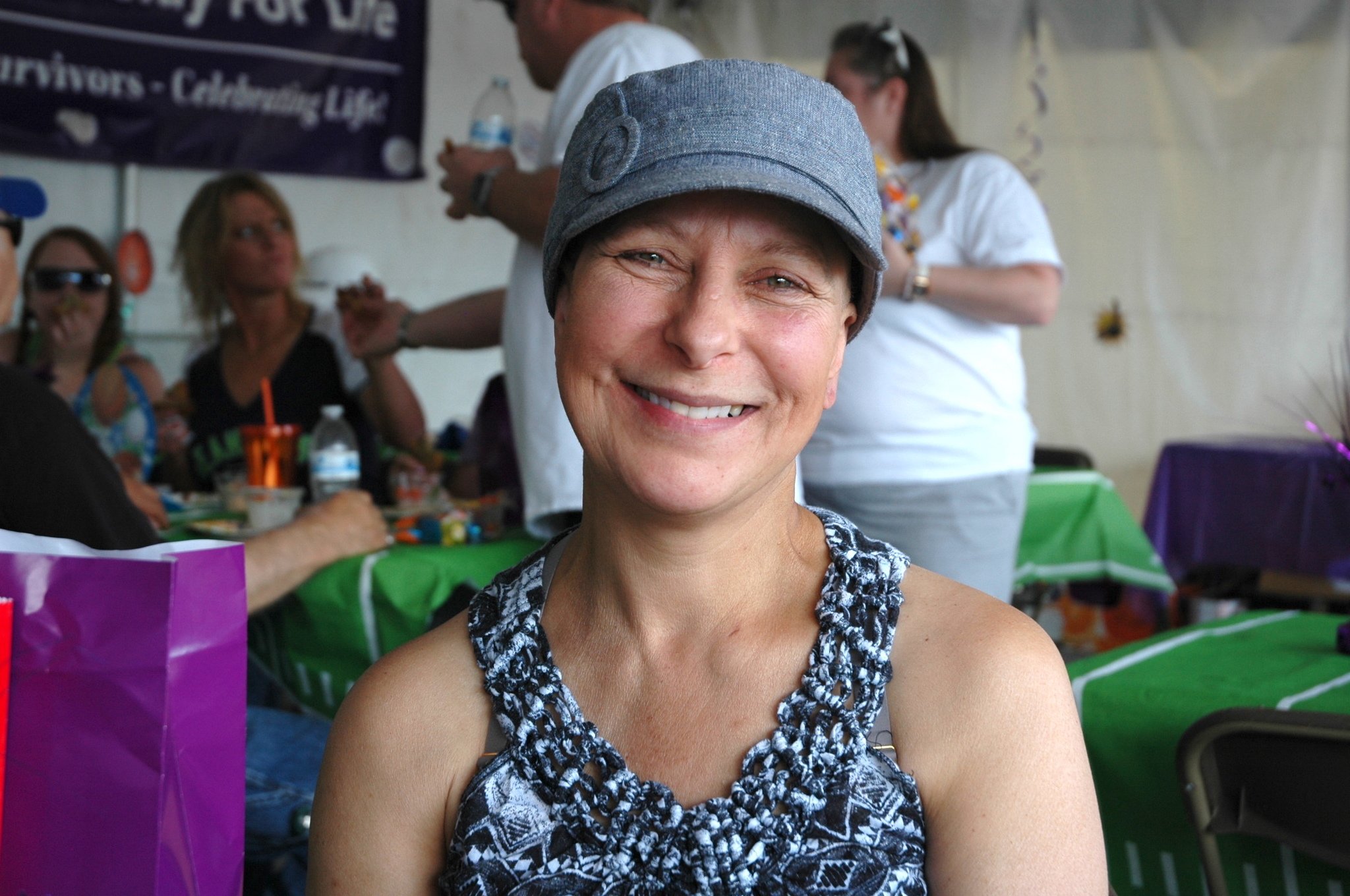MARYSVILLE — June 25 marked Monique Wold’s first Relay For Life.
The Marysville resident turned out to the Tulalip Amphitheatre with her fellow members of the “Kickin’ It For Cancer” team, her smile and mood bright enough to match the day, but she’s still in the midst of her fight.
Wold has no family history of cancer, but that didn’t safeguard her from being diagnosed with Stage 2 breast cancer in November.
“I didn’t feel doomed,” Wold said, while sharing lunch with her fellow cancer survivors under one of the purple tents. “I just wanted to know how bad it was.”
Just that simply question took months to answer. Her cancer was described as “invasive” and “aggressive,” and that was before she was told that there’s a receptor in her body that makes cancer grow faster.
“I’ll need another year of treatment just for that,” Wold said. “Fortunately, because of all the money that’s been pumped into cancer research, they’ve been able to find and target the protein that’s connected to the tumor.”
Wold considers herself fortunate because there are forms of breast cancers for which no such targets exist, which makes it difficult for doctors to administer drugs effectively.
Wold underwent four and a half months of chemotherapy and is taking a blocker because she has high levels of estrogen, which is suspected of causing breast cancer.
She also has a course of radiation treatments and a double-mastectomy ahead of her.
“It’s not mandatory, but most breast cancer patients opt to have it done on both breasts,” Wold said. “I’ll be getting reconstructive surgery done, and I haven’t heard one negative word about it.”
Wold maintains her positive attitude by reflecting on the advances that have been made in cancer care over the years.
“Every single day, it becomes easier to beat,” Wold said. “All the technology and treatments that are available now are amazing. There used to be such a stigma that people didn’t even talk about it, but now, it’s so commonplace and accepted that people work and even run marathons with cancer.”
Wold encouraged cancer patients to advocate for themselves because one aspect that remains challenging is navigating the bureaucracy of the health care system.
“Make calls,” Wold said. “Try and get earlier appointments when other folks cancel. Always ask how much certain types of treatment cost, and what their side-effects are.”
It was only through Wold’s constant pushing that she secured approval for some of the drugs she received, but as she noted, “That shouldn’t be my job.”
Still, Wold said she is grateful to the American Cancer Society for its role in making possible the types of targeted treatment that make it more likely that she will be a survivor in the long run.


